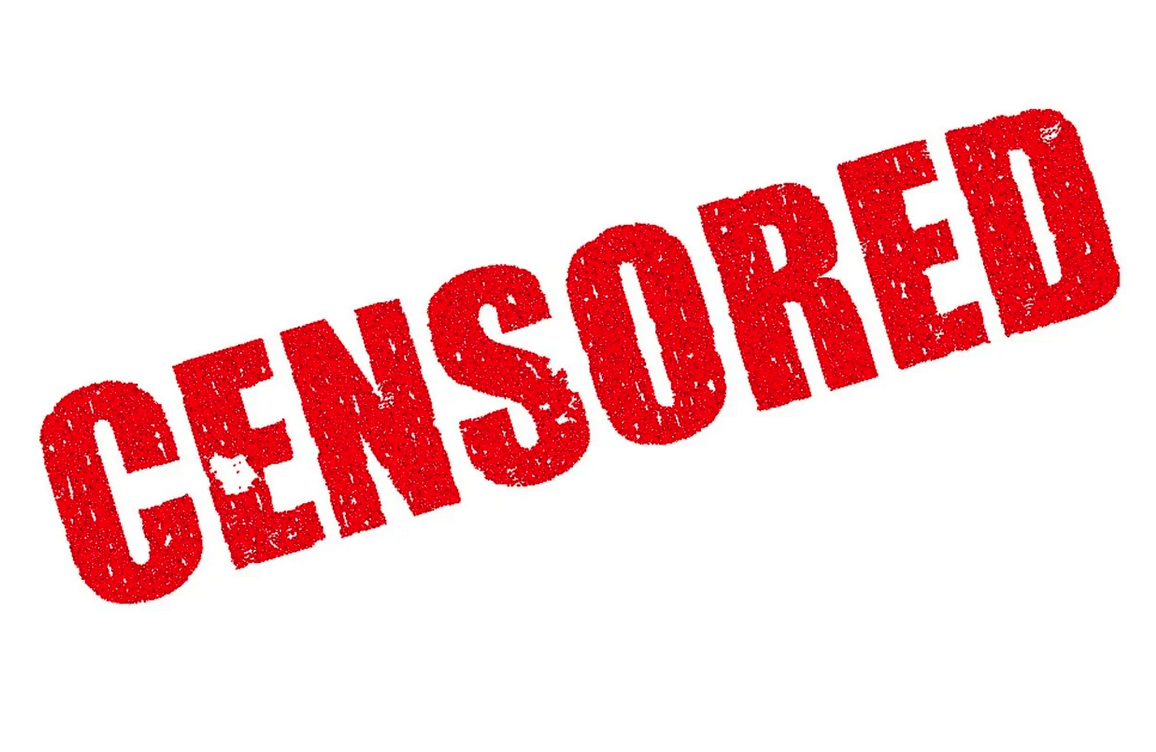Heliobas Disciple
TB Fanatic

A Draconian New Law Went Into Effect On August 25th That Institutes Extreme Censorship Of The Internet On A Global Basis
The Internet just changed forever, but most people living in the United States don’t even realize what just happened. A draconian new law known as the “Digital Services Act” went into effect in the European Union on Friday, and it establishes an extremely strict regime of Internet censorship...
endoftheamericandream.com
A Draconian New Law Went Into Effect On August 25th That Institutes Extreme Censorship Of The Internet On A Global Basis
by Michael Snyder
August 29, 2023
The Internet just changed forever, but most people living in the United States don’t even realize what just happened. A draconian new law known as the “Digital Services Act” went into effect in the European Union on Friday, and it establishes an extremely strict regime of Internet censorship that is far more authoritarian than anything we have ever seen before. From this point forward, hordes of European bureaucrats will be the arbiters of what is acceptable to say on the Internet. If they discover something that you have said on a large online platform that they do not like, they can force that platform to take it down, because someone in Europe might see it. So even though this is a European law, the truth is that it is going to have a tremendous impact on all of us.
From this point forward, nothing will be the same. It is being reported that the DSA literally makes large tech companies “legally accountable for the content posted to them”…
The European Union’s Digital Services Act (DSA) has officially gone into effect. Starting on August 25th, 2023, tech giants like Google, Facebook, Amazon, and more must comply with sweeping legislation that holds online platforms legally accountable for the content posted to them.
Even though this new law was passed in the EU, we’ll likely see far-reaching global effects as companies adjust their policies to comply.
Initially, there will be 19 giant online platforms that will be forced to comply with this new law…
Ranging from social media platforms to online marketplaces and search engines, the list so far includes: Facebook, TikTok, X (formerly Twitter), YouTube, Instagram, LinkedIn, Pinterest, Snapchat, Amazon, Booking, AliExpress, Zalando, Google Shopping, Wikipedia, Google Maps, Google and Apple’s mobile app stores, Google’s Search, and Microsoft’s Bing.
But starting on February 24th, 2024, the Digital Services Act will start applying to a much broader spectrum of online platforms that have fewer than 45 million monthly users.
We are being told that this new law will establish clear rules that online platforms must follow.
That will include censoring anything that is deemed “false or misleading” under the Strengthened Code of Practice on Disinformation...
So what kind of speech is the DSA expected to police? Last year’s Strengthened Code of Practice on Disinformation defines disinformation as “false or misleading content that is spread with an intention to deceive or secure economic or political gain and which may cause public harm.” The code has already been put to work during elections and to “respond to crises,” such as COVID and the war in Ukraine.
And it really doesn’t matter if material that European bureaucrats consider to be “false or misleading” is actually “false of misleading” at all.
What matters is that if online platforms do not comply with what they are being told to do, they will pay dearly…
Online platforms that don’t comply with the DSA’s rules could see fines of up to 6 percent of their global turnover. According to the EU Commission, the Digital Services Coordinator and the Commission will have the power to “require immediate actions where necessary to address very serious harms.” A platform continually refusing to comply could result in a temporary suspension in the EU.
Big tech companies will be desperate to avoid such penalties, and so they will obey.
And so that means that “hundreds of unelected EU bureaucrats” will be in control of speech on the Internet now…
Under this Orwellian regime, a team of hundreds of unelected EU bureaucrats will decide what constitutes disinformation and instruct Big Tech firms to censor it. The firms themselves, faced with reputational risk and financial penalties, will have little choice other than to comply. This can be done in all manner of ways: simply by human moderators removing content, by shadow-banning problematic creators to reduce their reach, by demonetising certain content, and by tweaking algorithms to favour or disfavour certain topics. And though, legally speaking, the DSA only applies in the EU, once installed inside Big Tech firms, this vast content-regulation apparatus will surely affect users in the rest of the world, too.
We are being told that these EU bureaucrats will also be working with “trusted flaggers” to help identify content that needs to be censored…
The DSA’s “trusted flaggers” are entities with proven expertise in flagging harmful or illegal content to platforms. The new regulation provides that their content flagging shall be prioritised by platforms when moderating content.
You might be tempted to think that you will be able to avoid all of this censorship because you do not live in Europe.
Unfortunately, that is simply not true.
If you post something that someone in Europe might see, your content comes under the jurisdiction of this horrifying new law.
So you need to brace yourself for a level of Internet censorship that none of us have ever seen before.
In addition, most of the large tech companies that must comply with this new law are based in the United States.
And it turns out that the Federal Trade Commission actually sent officials to Europe in March to assist with the implementation of this new law on U.S. soil…
U.S. Senate Commerce Committee Ranking Member Ted Cruz (R-Texas) today sent letters to Federal Trade Commission (FTC) Chairwoman Lina Khan and the head of the European Union’s San Francisco office, demanding answers regarding the degree of coordination between the FTC and the EU to enforce the EU’s Digital Services Act (“DSA”) and Digital Markets Act (“DMA”) on U.S. soil. Both foreign laws were written to weaken American tech companies, particularly in Europe. There are no corollary federal laws to the DSA and DMA, making the FTC’s efforts to conspire with foreign regulators against U.S. businesses unprecedented.
The FTC announced in March that it was sending agency officials to Brussels to assist the EU in implementing these laws, while the EU opened a San Francisco office to pressure U.S tech companies to comply with them.
From this point forward, it is going to become much more difficult to share alternative views on the Internet.
Personally, there will be certain things that I will only be able to share in my books or with the paid subscribers of my Substack newsletter.
I am going to need to be more careful about what I share from now on, because if I say something publicly on the Internet that offends the bureaucrats in Europe, I could get into really big trouble.
And that is going to apply to every other independent journalist as well.
For a long time, the Internet allowed ordinary people like you and ordinary people like me to share truth with a world that was desperate for it.
But now the gatekeepers are exerting a draconian level of control, and the Internet will never, ever be the same again.








